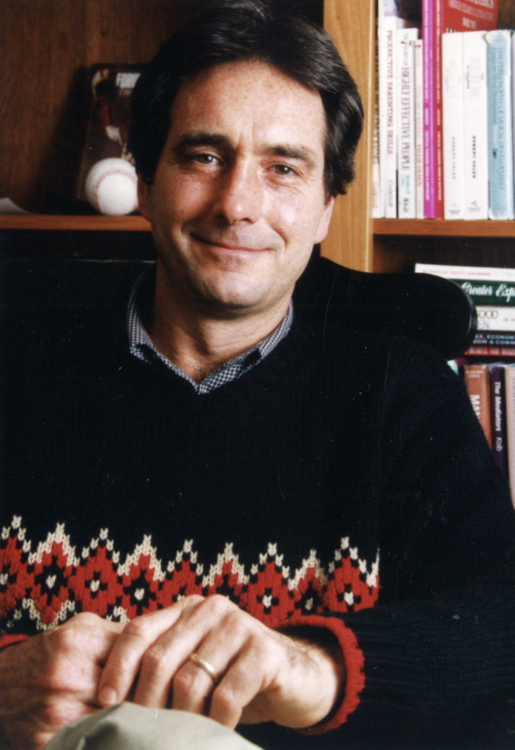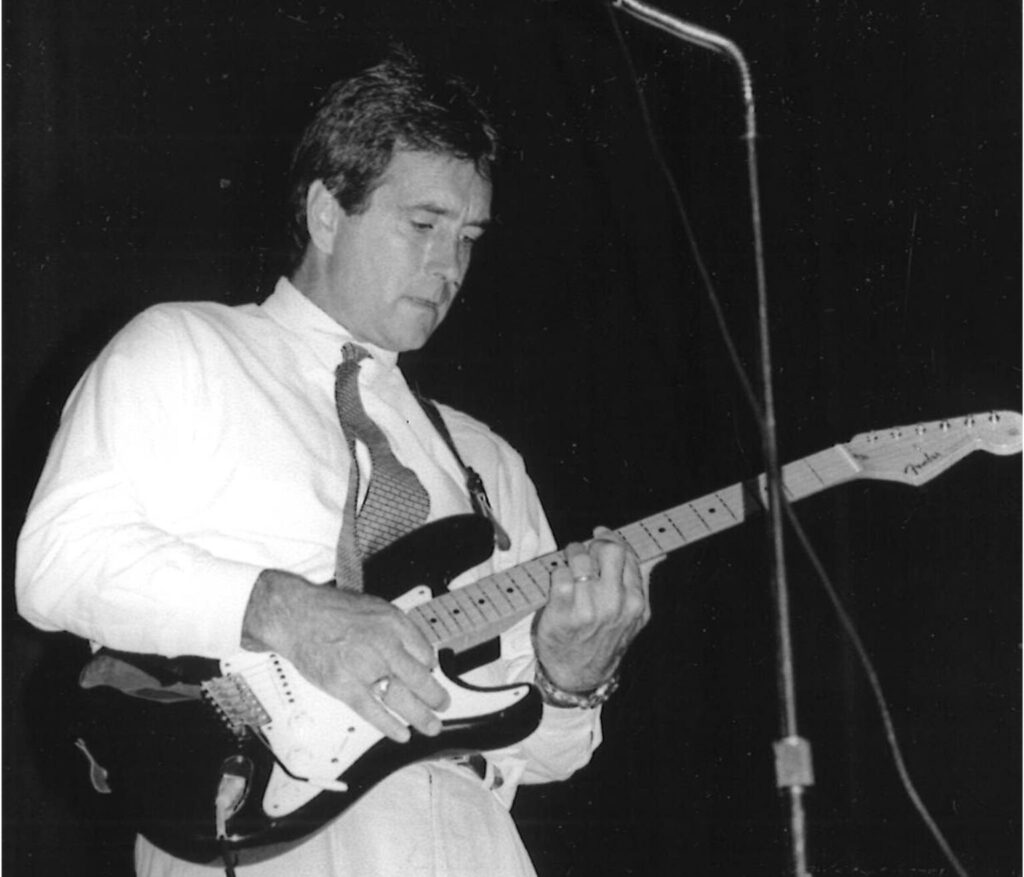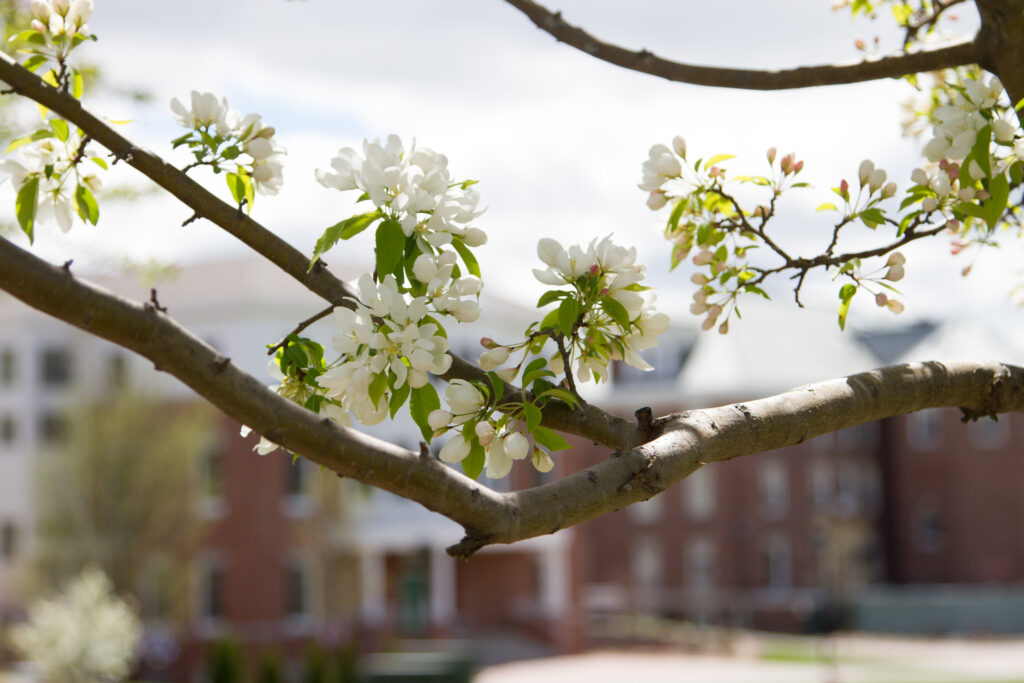Today, I gathered with friends, colleagues, acquaintances, former students, former teachers, and former staff members at the New Hampton School, the high school I graduated from in 1994 and then returned to for my first job after college, a job I planned to stay at for a year or two and ended up staying for almost a decade. Most of the reason why I stayed was a man named Jeffrey Pratt Beedy, Ed.D. — known almost universally as Jeff or, even more commonly, Beeds. Jeff was also the reason I returned today, because I had been asked by his family to speak at a memorial celebration of his life. (Jeff’s obituary is available at this link. Here is the official New Hampton School remembrance of him.)
I will put my remarks below, because some folks have asked for the text, and because Jeff is the most extraordinary educator I have ever known, and I would like people who weren’t lucky enough to know him to share in some of what he taught us. But before that, I want to write a bit more context, since the audience here is a little different from the audience this morning.
I attended New Hampton as a day student on a scholarship. Having grown up in the area, a lot of my friends were faculty kids, and so I knew the campus and the people. I ached to work with some of the English and history teachers I knew about there, to study subjects too esoteric for my public school (e.g. Latin), to be part of an intensive theatre program. The first couple years were hard because the school was not in great financial shape. When Jeff became headmaster of New Hampton for my junior and senior years, the financial challenges had reached a level of impending catastrophe. As the new headmaster, he was tasked by the board of trustees with slashing costs, including salaries and many positions. Almost everyone who made me excited to attend New Hampton lost their job the summer Jeff arrived. I looked into going back to public school. I hated this new guy who had, in my eyes, destroyed the place that had in so many ways given me hope in learning. And then he invited me in to chat about the changes — and to help him pick up the pieces and do whatever we could do to make it a better place, a true community.
Jeff had a remarkable ability to see you not only for who you were but who you could be. He could listen, truly listen. He figured me out even when I couldn’t figure myself out. He knew books were the way to my heart, so while I was trying to figure out if I could trust him, he gave me Theodore Sizer’s book Horace’s Compromise: The Dilemma of the American High School. Later, he handed me A.S. Neill’s Summerhill. He encouraged me to advocate for myself, to find my own way through the structures of school, to seek passions and new experiences, to take risks. And he did this for countless other people as well.
When I returned to New Hampton as a teacher, I got to play around with a lot of these ideas and possibilities. It was often messy work — sometimes it felt like everybody on campus was director of their own program and hardly anybody was maintaining anything. I remember endless schedule conflicts, organizational frustrations, chaos. And, amidst it all, magic. The magic of community. I wouldn’t ever recommend creating some of the chaos we created, but having to work through that chaos together solidified bonds between faculty, staff, and students that last to this day. Jeff had a marvelous talent for creating and encouraging community. He brought people together in a way I’ve never seen from anyone else. Sometimes utterly whimsically. Numerous people can testify to the fact that they ended up as a student or staff member at New Hampton entirely because they happened to encounter Jeff Beedy somewhere, he saw possibility in them, and he convinced them to come to rural New Hampshire to be a student at a boarding school or, even more remarkably, to take a job where they would be paid barely anything while working as hard as they ever worked in their lives. (I’ve never been so exhausted as in my first three or four years as a teacher at New Hampton.)
In the early 2000s, when I was a young teacher at the school, Jeff called me to his office for a chat, saying he had a project to propose. What he proposed was that we write a book together. He had a title and a concept: a kind of allegorical novel about adolescents who made a successful community for themselves on a remote island. Kind of a reverse Lord of the Flies. It would be a story told from the point of view of a school headmaster who was having a mid-life crisis, a sense of his career not meaning anything. He would somehow get to the island and learn from the adolescents. It would be called Dancin’ with the Natives, because he loved the idea of the adolescents as having a kind of native knowledge of their own world and needs, and dancing is a beautiful mix of two of his favorite things: music and physical movement. What did I think? Could I write that?
I liked the challenge, so I said yes. Jeff offered me a fair fee for the work, and my assumption was that I would basically write a draft from his outline and notes, then he would revise the draft to whatever he wanted it to be. I wrote quickly, trying to give shape to the various ideas gave me. We had fun talking about it all, learning from each other, but I was clear with him: this was his book. He could do with it what he wanted, and I didn’t expect my name to be on it. He was fine with that. I finished the draft, he liked it, and then he found a way to publish it. The first edition was called Dancin’ with the Natives and it had both our names on it. I never loved the folksy dancin’ and have always been a bit uncomfortable with the idea of natives, but it was Jeff’s book and he loved it. Once I got my Ph.D., he was really proud of me, and republished the book himself as Dancing with the Natives, with the short forms of both our names (Jeff and Matt), plus his Ed.D. and my Ph.D. Though I still think of it as Jeff’s book, and don’t include it on my CV or bibliography, it’s work I’m terribly proud of, because for all its awkwardness (and it definitely has some awkwardness in the writing), it honestly represents what we both believed when we wrote it, and it was a joyful collaboration.
Nowadays, running a program for students to create their own college majors, I think of Jeff every day at work. He would have hated all the bureaucracy I have to negotiate in my university life, but I talked with him about the job shortly before his death, and he loved that a big part of my work is helping students discover and shape the education they need. The community is very different than the one we shared, but the work of trusting students, empowering students, and helping students through the mess of living, learning, and working together is the same.
That’s the context. Here, then, is what I said to celebrate Jeff’s life:
Remarks in Celebration of Jeffrey Pratt Beedy
McEvoy Theatre, New Hampton School, 4 June 2023
Matthew Cheney
I first met Jeff Beedy in this very building. He was a finalist for the headmaster job and I was one of the students asked to have lunch with him on the day of his interviews. It was in the Moody Room, which is now, I think, the Dean of Students’ office, but then it was a rather dark conference room. We both got there early. I was awkward and geeky, even more than I am now, and Jeff put me at ease, asking questions about the school, about me, about whether he should take the job if it was offered to him. Later, he would tell people I was the first student he met here, but I don’t think that was true, and I wouldn’t be surprised if he said the same thing about a bunch of people. He liked to make us feel special, and we did feel special, and though sometimes he may have told us things that weren’t technically true, they were true in spirit. We thrived on that spirit. Many times, he believed in me far more than I believed in myself. A lot of us here today can say that. Indeed, it’s one of the primary reasons we are here. To pay honor to a man who believed in us.
A group of us were talking about him after we learned that he had died. Someone said, “He gave us each other.” That’s true. So many of my friends through the years are people I met because of Jeff Beedy, either directly or indirectly. He encouraged us to get to know each other even if it didn’t seem obvious why we should. That my best friend to this day was a varsity football player here is a friendship achieved because Jeff insisted that the borders we had built between, for instance, arts and athletics were harmful, and that overcoming that harm required doing the work of breaking through the borders. He charged us to do that work as a school community. With our fair share of grumbles and curses, we tried to live up to his vision, failing plenty of times, but succeeding often enough that lives were changed forever.
The day the news of Jeff’s death made its way through our networks, I had to leave work because I was too distracted by all the stories we were all telling. Decades of fun and frustration, joy and sorrow, inspiration and compassion. It got exhausting, going from tears to laughter to tears to laughter. A good exhausting, though. An exhaustion filled with gratitude and love. And that gratitude and love made their way literally around the world. From New Hampshire to New Mexico, Canada to Cameroon. The sense of connection was more profound than I have felt in a long time, and what was it that connected us, that connects us still? Jeff Beedy.
It’s really hard to explain Jeff to people who didn’t know him. In the past, when I wanted new colleagues and friends to know what a colossal figure he was in my life, I would explain he was my friend, but friend was never quite the right word, even though it’s certainly accurate. Now when I need to quickly explain my relationship to him, I say friend and mentor. The mentor part is vitally important. Jeff was my headmaster, and then he gave me my first job out of college and became my boss. But he was also a guy I could talk to about pretty much anything, and who had sometimes scary insight into what was really going on. He was a guy who gave me books and talked to me about music, a guy I actually wrote a book with myself and a guy who took a whole bunch of us to a Bob Dylan concert just a couple months after 9/11, the first time I remember feeling human again after that awful September day in 2001. And, as much as anyone, Jeff was someone who encouraged me to trust students and to trust the messy process of education — in fact, to see the messy part as the part that really matters.
When I think of Jeff, I don’t think only of someone I enjoyed hanging out with, talking with. There is that, but more than that, I think about all I learned from him. I have spent twenty-five years of my life now as a teacher, and I don’t think that would have happened without Jeff. Not just because he was so determined to get me back to New Hampton to teach, but because he sparked a passion in me by giving me — and all of us — a vision of education as being about people. Not theories, not rules, not abstractions. People. He directly challenged me to see that the best teaching isn’t about having the best students, it’s about being the best teacher for the students you have. Recognizing that the difficult situations are the most important ones. That was hard to learn, but important. And it led to everything else I hold onto now as the lessons Jeff Beedy gave me, gave all of us.
Jeff taught us that a healthy community is one where everybody feels known, needed, and cared for. Faculty, staff, students, all of us. Known, needed, and cared for. When he got to New Hampton, the school was in a dire financial situation, and Jeff had to make some truly painful staff cuts. I really got to know him because of that, because I marched into his office the summer between my sophomore and junior years to protest to him that in letting some beloved faculty go he was ruining our school. I still disagree with some of what he felt he had to do that summer, but I also know his side of it, because he was very honest about the challenges he faced. His office was always open to me and my friends that summer as we tried to understand what was happening. He told us he knew the situation sucked — I think those were his exact words, this situation sucks — and he asked us to help him make the school the best place we could make it be together. Together.
Known, needed, cared for. Those were the words he repeated again and again. He saw the lack, he felt it to his bones in that summer when he was a brand new headmaster. He knew where we had to get to not only if the school was to survive, but if it was to deserve to survive. The institution may have all sorts of failures and deficiencies, but it doesn’t require money or superstar talent to strive for that vision of community — that ideal of everyone being known, needed, and cared for — it just requires a commitment to the basic values themselves.
Jeff taught us to practice compassion so that it becomes a habit, something like muscle memory in a muscle strengthened by regular workouts. The times that most benefit from compassion are also sometimes the hardest to open your heart to. But those are the times when compassion matters the most, those times when our first impulse is to close our hearts, to put up our armor, to reject what feels too difficult. Jeff knew this impulse and he knew how important it is for a community to work against it, to cultivate the openness and acceptance necessary for education, the strength to meet someone not where you want them to be but where they are. He knew this not only as someone capable of extraordinary compassion — which I saw during some tragedies here, times of great loss — but also as someone who needed compassion and forgiveness himself. Jeff was a complex, contradictory, flawed man. He knew that. He would be the first to tell you how imperfect he was. Like many great leaders, though, he let this be a guide for what he led us toward. Jeff needed a community that could accommodate imperfection, understand mistakes, and help people live beyond their worst moments.
That is what I hold onto now. I think of it as Jeff’s challenge to us. To go forth as imperfect people in an imperfect world, and to do whatever we can to help each across our imperfections. To recognize the best in each other, even — especially — at the worst times. We don’t have Jeff here to do that for us anymore. The work is ours now. He taught us what to do. We must continue to believe in us.


